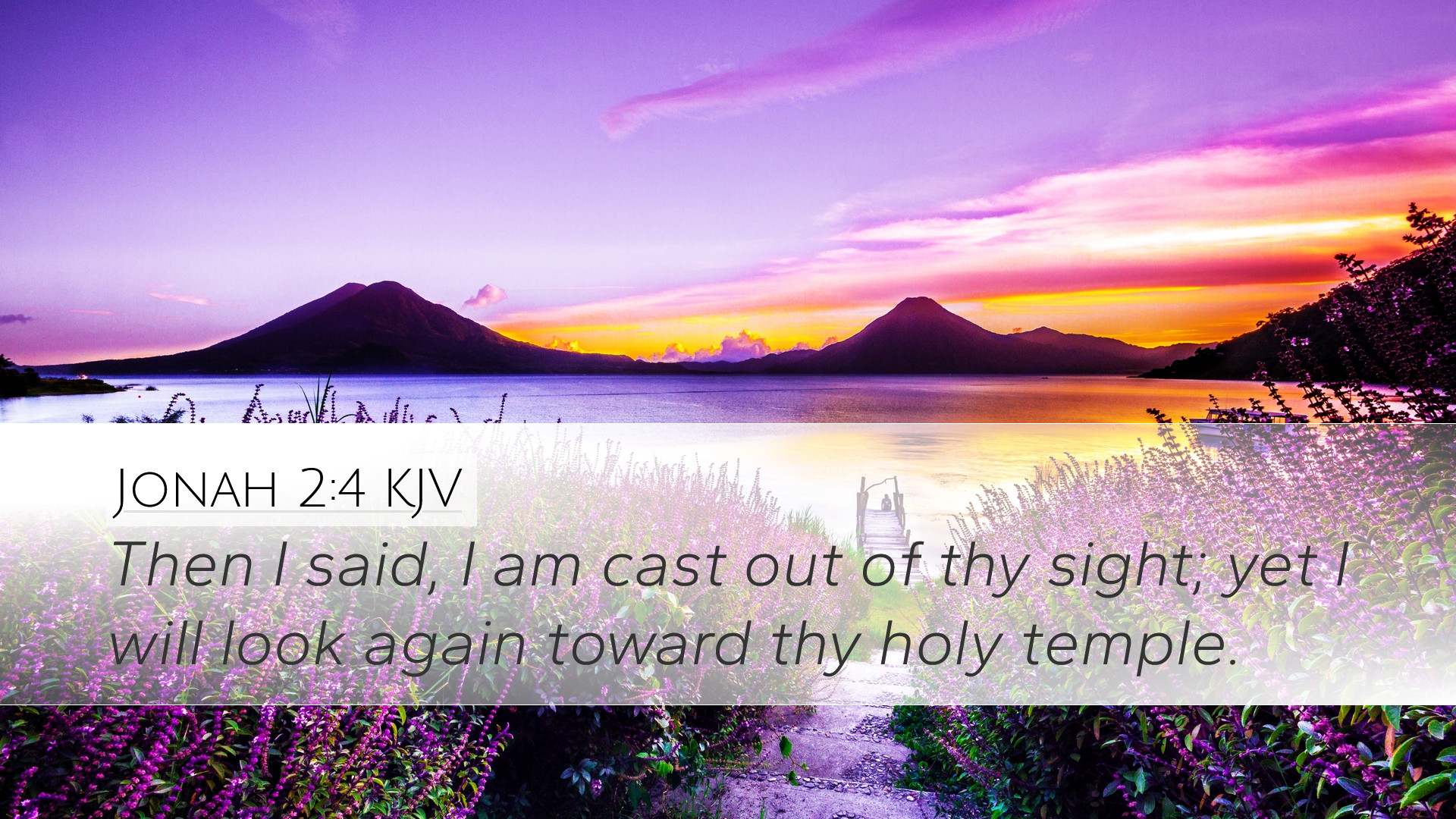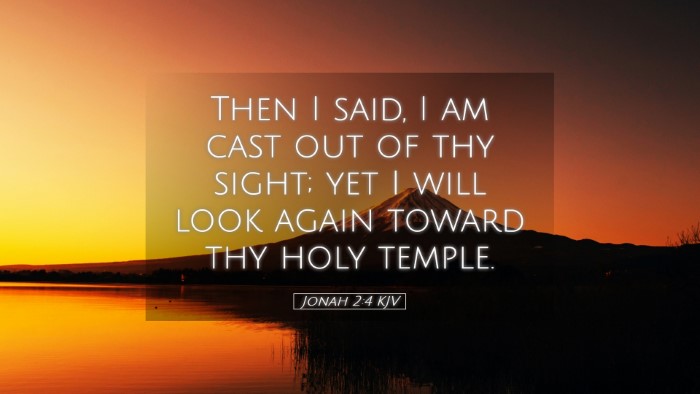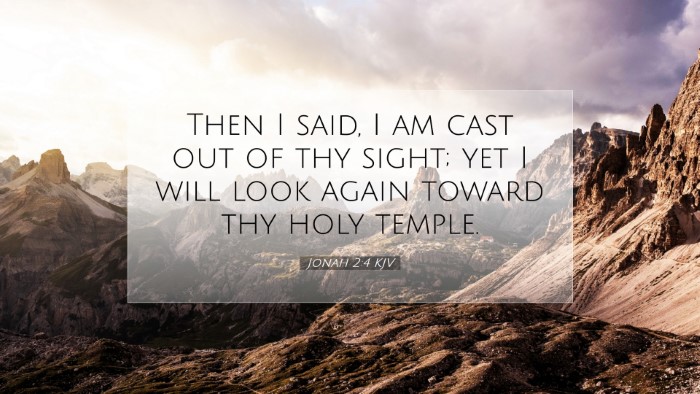Old Testament
Genesis Exodus Leviticus Numbers Deuteronomy Joshua Judges Ruth 1 Samuel 2 Samuel 1 Kings 2 Kings 1 Chronicles 2 Chronicles Ezra Nehemiah Esther Job Psalms Proverbs Ecclesiastes Song of Solomon Isaiah Jeremiah Lamentations Ezekiel Daniel Hosea Joel Amos Obadiah Jonah Micah Nahum Habakkuk Zephaniah Haggai Zechariah MalachiJonah 2:4
Jonah 2:4 KJV
Then I said, I am cast out of thy sight; yet I will look again toward thy holy temple.
Jonah 2:4 Bible Commentary
Commentary on Jonah 2:4
In this pivotal verse from the Book of Jonah, the prophet expresses a profound spiritual realization during his time of distress. The verse reads: "Then I said, I am cast out of thy sight; yet I will look again toward thy holy temple." This statement offers deep insights into the human struggle of despair and the hope that can arise even in dire circumstances.
Context and Background
The Book of Jonah presents a unique narrative in the prophetic literature. Unlike other prophetic books that primarily contain oracles, Jonah’s story details his personal experience of running from God and the subsequent divine pursuit. His prayer from within the fish is both a cry of desperation and a moment of introspection.
Thematic Elements
Three major themes can be discerned from Jonah 2:4:
- Despair and Separation: Jonah feels a sense of alienation from God’s presence.
- Recognition of God’s Sovereignty: Despite his circumstances, Jonah acknowledges God’s authority.
- Hope and Restoration: Jonah’s declaration reflects a desire to reconnect with God.
Verse Analysis
Each phrase of Jonah 2:4 carries significant weight:
- I am cast out of thy sight: This reflects Jonah’s profound emotional and spiritual state. He feels cut off from God, which speaks to the consequences of sin and disobedience.
- Yet I will look again: This indicates the turning point in Jonah's mindset. Even when he feels abandoned, he resolves to seek God once more.
- Toward thy holy temple: The mention of the 'holy temple' signifies hope. The temple represents God's dwelling place, a place of worship and communion.
Insights from Public Domain Commentaries
Matthew Henry
Matthew Henry emphasizes the importance of prayer in times of trouble. He notes that Jonah's primal instinct in despair was to cry out to God, illustrating that true penitence often emerges in moments of profound need. Furthermore, Henry highlights the significance of looking towards the temple as a metaphorical gesture of faith, indicating that despite physical separation, Jonah seeks communion with the Divine.
Albert Barnes
Albert Barnes offers a pastoral insight into the emotional struggles of believers. He interprets Jonah’s exclamation as a common human experience—feeling forsaken and isolated during trials. Barnes underscores that the phrase "yet I will look again" serves as an affirmation of faith, demonstrating that restoration is possible even after apparent abandonment. This assertion holds critical implications for congregational counseling and encouragement during spiritual low points.
Adam Clarke
Adam Clarke’s commentary delves into the theological implications of the verse, particularly regarding grace and redemption. Clarke argues that Jonah’s recognition of his plight is crucial for understanding the nature of repentance. He posits that the act of ‘looking’ toward the temple represents a disciplined turning towards God in faith, validating the notion that even in the depths of despair, hope exists in divine mercy.
Practical Application
This verse serves as a powerful reminder for pastors and theologians regarding the nature of the human experience in relation to God:
- Encouragement for the Suffering: This scripture can provide hope to those who feel distant from God, reminding them of the possibility of reconciliation.
- Prayer as a Response: It emphasizes the necessity of prayer in distress, prompting believers to seek God even when feeling unworthy.
- Faith Amidst Trials: Jonah's commitment to look towards God in spite of his circumstances underscores the importance of maintaining faith.
Conclusion
Jonah 2:4 encapsulates a profound theological truth about humanity’s relationship with God amidst trials. Drawing insights from revered commentaries enriches our understanding of this verse and reinforces its relevance across generations. Whether for personal reflection or communal teaching, this passage encourages believers to seek God earnestly, illustrating that distance from Him does not preclude the possibility of restoration and renewed communion.


